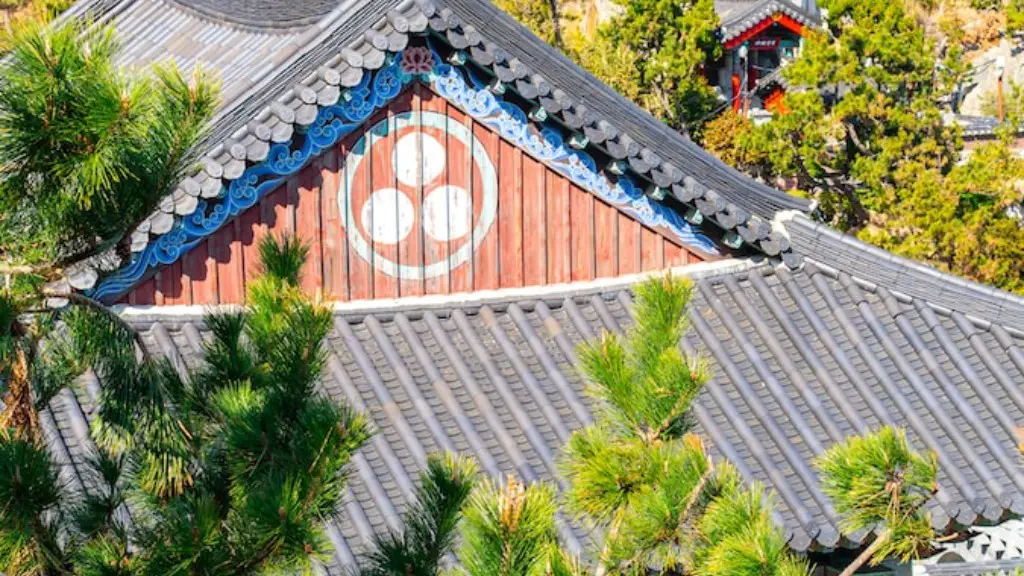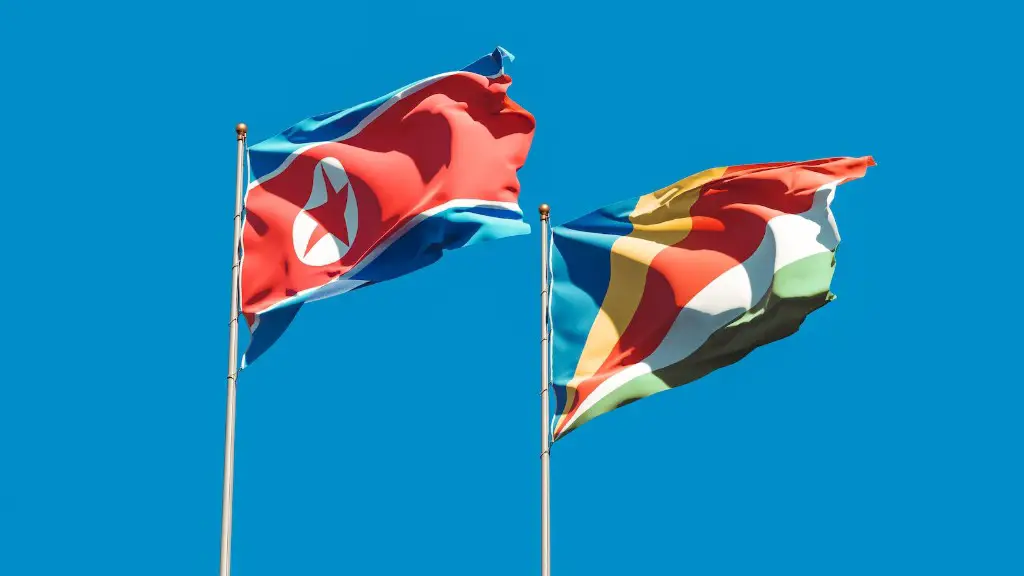Where Does North Korea Get Its Weapons?
North Korea is one of the most heavily armed nations in the world and its nuclear and ballistic missile programs are a major source of tension in East Asia and beyond. The question of where North Korea obtains its weapons has been a heated topic in international diplomatic circles for decades.
The DPRK, or Democratic People’s Republic of Korea, is known to have access to an extensive domestic weapons industry and is suspected of illegally importing weapons components from abroad. North Korean military-related shipments and other suspicious activities have been observed from China, Russia, and several African countries, and Pyongyang has been caught in numerous attempts to smuggle military equipment and technologies.
Dr. Rémi Fauchard, an expert on North Korea’s nuclear and ballistic missile programs, says that North Korea often buys or barters for weapons parts and technology with its “trading partners”, such as China, Russia, and Egypt, as part of its long-term military ambitions.
“It is possible to speculate, based on open sources and intelligence reports, that much of the military technology used by Kim Jong Un’s regime was acquired illegally through various routes,” remarks Dr. Fauchard.
North Korea reportedly relies heavily on foreign expertise and technology due to its poor domestic military industry. According to experts, the DPRK is believed to have received assistance with missile development from several countries, including Iran, Pakistan, and Ukraine.
History of North Korea’s Weapons Trade
North Korea has been involved in weapons trading and smuggling activities since the Cold War. During this period, the DPRK sent to Cuba weaponry, artillery and jet fighters of Soviet origin, and is widely believed to have provided financial and military assistance to terrorists in Africa and the Middle East.
In the early 1990s, North Korea was caught trafficking in Scud missiles and other ballistic missiles to Pakistan and Iran, violating the Missile Technology Control Regime (MTCR). In the late 1990s and early 2000s, DPRK-linked ships were being monitored smuggling and trading arms with several countries in Africa and the Middle East. These incidents point to a well-developed network of underground arms traders rooted in North Korea and various other countries.
Pyongyang is also known to have traded weapons components with China, and China has long been suspected of helping North Korea with its missile and nuclear programs. In 2005, documents discovered in North Korea revealed that North Korea had been illegally trading missile and nuclear technologies with China in violation of international sanctions.
International Response & Sanctions
North Korea’s weapons trading activities have been criticized and condemned by the international community. UN member states have imposed numerous sanctions on North Korea in an effort to stop its proliferation activities, with the most recent round of UN sanctions being imposed in 2017. The sanctions are aimed at preventing North Korea’s weapons trade and curbing wealth the country makes from its international weapons sales.
However, according to Dr. Suryae Son, a political scientist specializing in North Korean weapon trade, “The sanctions have been ineffective in curbing North Korea’s weapons trade. They have failed to impede the DPRK’s weapon programs, which continue to expand in spite of numerous UN resolutions.”
But while sanctions have failed to curb North Korea’s weapons trade, there have been some successes in international efforts. For example, in 2009, the US successfully convinced China to cut off shipments in a border town of Wuhan suspected of being a North Korea arms dealer.
North Korea’s Motives for Obtaining Weapons
North Korea’s weapons trade is motivated by a long-term desire by the government in Pyongyang to remain in power and make the DPRK militarily independent. To achieve this goal, the Kim Jong Un regime has focused on developing a strong military force with a particular focus on nuclear and ballistic missiles.
Dr. Son believes that North Korea’s increasing sophistication in weapon technology is a direct result of this weapons trade. “North Korea has been able to learn from its different weapons trading partners and gain access to new technologies,” she says. “The increased sophistication in North Korea’s weapon technology can be seen in the recent advancements in nuclear and ballistic missiles.”
North Korea’s Weapons Trade and Terrorism
Although North Korea is not known to have supplied any terror groups with weapons, its weapons trading activities are often linked to international terrorism. Over the years, North Korea has been linked to arms smuggling to a number of different countries and organizations, including Syria, Iran, Libya, Venezuela, and Latin American drug cartels.
According to Dr. Fauchard, North Korea’s willingness to trade weapons with virtually anyone and its disregard for international laws and regulations make it an attractive partner for terrorist organizations seeking weapons. “North Korea has a history of supplying weapons to international terrorist groups and its link to international terrorism is well documented,” remarks Dr. Fauchard.
Is North Korea a Major Weapons Exporter?
Despite its reputation as a major weapons exporter, North Korea’s weapons trading has decreased in recent years due to international sanctions and pressure from the US and other countries. According to Dr. Son, “North Korea’s weapons trade is still active, but it is nowhere near the level it was in the 1990s and 2000s.”
Despite this decrease in weapons trading, North Korea still has access to a wide range of weapons and technologies through its partners and allies, and is believed to be a major supplier of weapons and technology to other countries. North Korea is suspected of supplying equipment and technology to countries such as India and Pakistan, and it is widely believed that the DPRK is helping Iran to develop its own nuclear weapons program.
North Korea and Arms Embargos
North Korea is under arms embargos from the UN and numerous countries, including the US, China, and Russia. However, despite these embargos, North Korea continues to be involved in weapons trading and smuggling.
Experts believe that North Korea’s disregard for international arms embargoes is a result of its belief that the sanctions are simply a political ploy by its adversaries. North Korea’s leadership has consistently rejected the legitimacy of the sanctions, and has remained defiant in the face of international pressure.
North Korea’s Arms Deals & Illegal US Sanctions
In 2018, the Trump Administration imposed a set of illegal US sanctions on companies and individuals involved in North Korea’s arms trade. Despite the sanctions, North Korea and its allies have moved forward with several arms deals, including weapons sales to Syria, and a nuclear technology transfer agreement with Iran.
Dr. Fauchard believes that these arms deals show that North Korea’s weapons trade is still active even with the tough international sanctions. “It’s clear that North Korea and its allies are still engaging in weapons trading, despite the international sanctions,” he remarks.
The illegal US sanctions imposed on North Korea and its allies have had some effect, but experts caution against taking too optimistic a view. North Korea’s weapons trade continues to be a major source of international tension and could be a destabilizing factor in the region.


